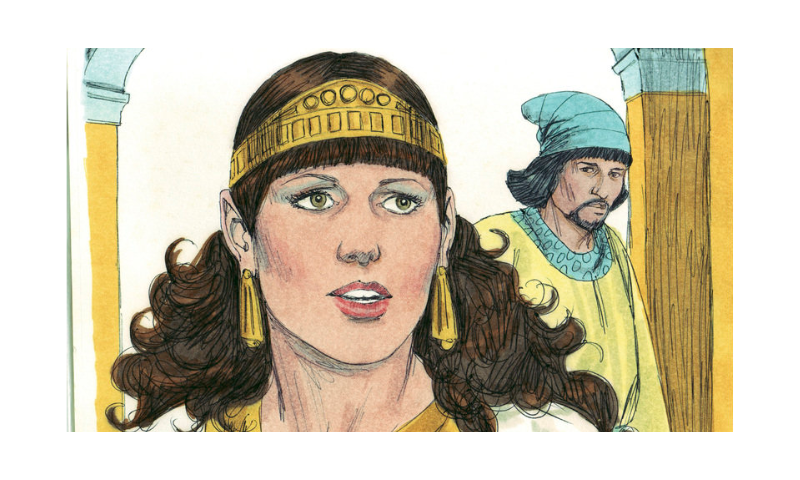Rabbi Ari Kahn
Orthodox Union, Mar. 20, 2019
“The profile of Achashverosh that emerges is of a weak personality tormented by the objects of his own desire.”
Working in the barn from the break of dawn was exhausting. Cleaning the barn, sweeping the refuse, and caring for the horses had become his life. Every muscle in his body reprimanded him: “There must be a better way. You were made for a better life. You are destined for greatness.”
At that moment he heard a rustling sound from the direction of the palace, and he lifted his eyes as a ray of light filtered in through the open window, the dust dancing in the sunbeam; again – a sound drew his attention outside the barn. There, on the balcony of the palace, directly in his line of vision, stood the most beautiful woman he had ever seen. She was aristocratic, cultured, exuding wealth and refinement. She was the granddaughter of King Nevuchadnetzar[2], daughter of the new king. As he peered at her and at the palace, he said out loud for the horses to hear: “One day she will be mine, one day it will all be mine.” The horses did not seem impressed with his pronouncement, but the young stable boy was determined: One day this princess –Vashti – as well as the palace in which she lived and the kingdom over which her family ruled – would be his. His name was Achashverosh, and he would not be denied.[3]
Flash forward to a few years later: Achashverosh has succeeded. He led a coup, and claimed the prizes he had vowed to take. He is king, emperor of 127 countries. He has taken up residence in the palace, and has taken Princess Vashti as his queen. Not surprisingly, though, Vashti loathes him. Sitting at the long, elegantly laid table, Achashverosh eats hungrily; the uncouth stable boy has none of the royal refinement into which his wife was born. Sitting at the other end of the table, the elegant Queen Vashti fidgets as Achashverosh mauls his food; she has lost her appetite. She mourns for her country, she mourns her lost family, and she mourns her life.
The Protagonists
The central protagonists of the Megillah we read each Purim are the eponymous Esther and her cousin Mordechai; the antagonists are the wicked Haman and the powerful but unstable Achashverosh. Vashti is often an afterthought; she is present only long enough to make way for Esther to step into the spotlight. Nonetheless, Vashti casts a large shadow and provides insight into many of the events that unfold. …SOURCE


